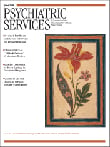The Doctor in Literature: Satisfaction or Resentment
Having been an English major in college, I sometimes find myself—as I numbly scribble another outpatient treatment report or progress note rendered banal by the constraints of time and use—thinking wistfully of the habits and attractions of the university life that might have been mine if had I followed a different muse. So it was with a pleasant disposition—and thoughts of reading something in the vein of Helen Vendler, Frank Kermode, or even Roy Porter—that I opened The Doctor in Literature on a warm and briefly rainy Saturday afternoon.
I looked over the table of contents to get a feel for the book. My curiosity was aroused by the book's peculiar organization, and I then sampled a few of the chapters. I found it more resembled the collection of a 19th century amateur naturalist than a work of literary or sociocultural criticism. Although it is assembled thematically, as I read the book, I was distracted by my acute awareness of what appears to have been its method of construction. The author—who has read exceptionally widely, and admirably, in the midst of a medical career marked by significant achievements and substantial scientific publication—has assembled a catalog of observations and literary excerpts about doctors as they are portrayed in works of literature. This catalog must have been recorded on something like index cards and carefully filed under headings such as "fees," "physical examination," "bedside manner," and so forth. The chapters of the book are then arranged, as were the dividers in my imagination, according to theme. The purpose of this arrangement was, according to the author, to show the progress of and patterns in the depiction of the physician as a subject of the creative intellect.
In his introduction, Dr. Posen acknowledges that this is a work of reference, something to "browse through" rather than a study or commentary. Indeed, what thoughts are interposed between the narrative summaries and quotations are scarcely substantive. Even the "Conclusions" come to less than a page of text and conclude little other than a peremptory defense of physicians as respectable people. Despite the predations of occasional unfit practitioners, the vagaries of history, and the assaults of critics who can be fairly marginalized, doctors are justly honored by a grateful public and are so represented in literature throughout the ages. Intruding through the sparse commentary, this patrician tone, and the lack of any insight worth mentioning, grates me. In a closing comment, Dr. Posen observes that "the idealistic notion that all patients, regardless of their social status, should be treated equally is manifestly impractical and is treated as such over the centuries." Really?
Nevertheless, I give Dr. Posen his due for having encompassed a topic coursing through the breadth of Western literature and for including excerpts from most of the great and relevant works. But reading this book makes me feel that I am walking past glass cases with butterflies and beetles pinned down inside and cards that note their similarity to, and difference from, their neighbors.
If others read this book and find themselves differently disposed toward it, please make your views known. As mental health professionals, we all must know how much our experience, whether of a person or of a book, is affected by the expectations that adumbrate it. I am unable to shake my interest in what this book might have been and so find less in what it is, however much I respect the intelligence and effort that shaped it.



